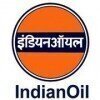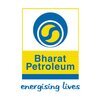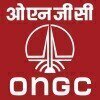
i
Reliance Industries
Proud winner of ABECA 2025 - AmbitionBox Employee Choice Awards
Filter interviews by
Reliance Industries Interview Questions and Answers
663 Interview questions
Understanding item rate changes is crucial for effective sales strategy and market competitiveness.
Item rates can fluctuate based on market demand; for example, seasonal products may see price increases during peak seasons.
Monthly rate changes can be influenced by inventory levels; if stock is low, prices may rise to maximize profit.
Market-based pricing considers competitor pricing; if a competitor lowers their pr...
Understanding sales item details is crucial for effective inventory management and sales strategy development.
Track sales volume: Monitor how many units of each item are sold over a specific period.
Analyze sales trends: Identify patterns in sales data to forecast future demand.
Segment sales data: Break down sales by region, customer type, or product category for targeted strategies.
Example: If a specific product s...
Designing critical scaffolding involves assessing needs, ensuring safety, and adhering to regulations for effective support structures.
Conduct a thorough site assessment to identify specific needs and hazards.
Select appropriate materials based on load requirements and environmental conditions, e.g., aluminum for lightweight needs.
Incorporate safety features such as guardrails and toe boards to prevent falls.
Ensure...
Innovative scaffolding ideas enhance safety, efficiency, and adaptability in construction projects.
Modular scaffolding systems that can be easily assembled and disassembled, reducing labor time and costs.
Incorporating smart technology, such as sensors to monitor structural integrity and worker safety.
Using lightweight, durable materials like aluminum or composite materials to improve mobility and reduce transporta...
What people are saying about Reliance Industries





FOB (Free on Board) and CIF (Cost, Insurance, and Freight) are shipping terms defining responsibilities for costs and risks.
FOB means the seller pays for transportation to the port of shipment; buyer assumes risk once goods are on board.
CIF includes the cost of goods, insurance, and freight to the destination port; seller retains risk until delivery.
Example of FOB: A seller in China ships goods to a buyer in the U...
M-20 concrete is a mix ratio of 1:1.5:3, used for medium-strength applications in construction.
M-20 concrete has a mix ratio of 1 part cement, 1.5 parts sand, and 3 parts aggregate.
It achieves a characteristic compressive strength of 20 MPa (megapascals) at 28 days.
Commonly used for structural applications like beams, slabs, and columns.
Example: For 1 cubic meter of M-20 concrete, you would need approximately 400 ...
Communication between field instruments and DCS involves data transmission, control signals, and feedback loops.
Field instruments (sensors, transmitters) collect data (e.g., temperature, pressure).
Data is transmitted to the DCS via communication protocols (e.g., HART, Modbus).
DCS processes the data and displays it on operator screens.
Operators can send control commands back to field devices through the DCS.
Feedbac...
In case of FT malfunction in refrigeration compressors, prompt assessment and action are crucial to ensure safety and minimize downtime.
Assess the situation: Quickly evaluate the extent of the malfunction and potential risks to personnel and equipment.
Isolate the system: Shut down the affected compressor and isolate it from the rest of the refrigeration system to prevent further issues.
Notify relevant personnel: I...
The Digitrack system uses advanced technology for precise tracking and monitoring of machinery and equipment.
Utilizes GPS and RFID technology for real-time location tracking.
Enables remote monitoring of machinery performance and diagnostics.
Improves asset management by providing data on usage patterns.
Can integrate with existing fleet management systems for enhanced efficiency.
Example: A construction company uses ...
I am a dedicated professional with a passion for finance and a strong background in analytical problem-solving.
Education: Bachelor's degree in Finance from XYZ University.
Experience: 3 years as a financial analyst at ABC Corp, where I improved reporting efficiency by 20%.
Skills: Proficient in Excel and financial modeling, with a certification in CFA Level 1.
Interests: I enjoy staying updated on market trends and r...
Reliance Industries Interview Experiences
1.4k interviews found
I applied via Naukri.com and was interviewed in Feb 2024. There were 2 interview rounds.
Question answer related piping job ,material related, manpower handling etc...
(5 Questions)
- Q1. Piping related question, Piping material astm code
- Q2. Types of piping drawing
- Ans.
Types of piping drawings include Piping and Instrumentation Diagrams (P&IDs), Isometric drawings, and Orthographic drawings.
Piping and Instrumentation Diagrams (P&IDs) show the piping system along with instruments and control devices.
Isometric drawings show the 3D representation of the piping system.
Orthographic drawings show the top, front, and side views of the piping system.
- Q3. Difference b/w construction and fabrication drawing?
- Ans.
Construction drawings show how a structure will be built, while fabrication drawings provide detailed instructions for manufacturing individual components.
Construction drawings focus on overall structure layout and dimensions
Fabrication drawings provide detailed instructions for manufacturing individual components
Construction drawings are used by contractors on site, fabrication drawings are used by manufacturers in wo...
- Q4. Piping material code ?
- Ans.
Piping material code refers to the standards and specifications used for selecting materials for piping systems.
Piping material codes are used to ensure the proper selection of materials based on factors like pressure, temperature, and fluid being transported.
Common piping material codes include ASME B31.3 for process piping, ASTM for materials specifications, and API for oil and gas piping.
These codes provide guidelin...
- Q5. Difference b/w pipe and tubes
- Ans.
Pipes are used to transport fluids or gases, while tubes are used for structural applications or heat transfer.
Pipes are measured by their inside diameter, while tubes are measured by their outside diameter.
Pipes are typically round in shape, while tubes can be round, square, or rectangular.
Pipes are commonly used in plumbing, HVAC systems, and oil and gas industries, while tubes are used in construction, automotive, a...
Interview Preparation Tips
- Piping
- Statatic Equipment
I appeared for an interview in Jan 2025.
(2 Questions)
- Q1. LIGHTUP YOUR SELF.?
- Ans.
I am a motivated and dedicated individual with a passion for construction management.
I have a strong background in construction and project management.
I am detail-oriented and have excellent organizational skills.
I am a team player and have experience working with diverse teams.
I am always looking for opportunities to learn and grow in the field of construction management.
- Q2. THEY ASKED ME FOR TECHANICALY QUESTION. OF PIPING of oil & GAS FIELD.
- Ans.
Piping in oil and gas involves the design, installation, and maintenance of pipelines for transporting fluids safely and efficiently.
Piping materials: Common materials include carbon steel, stainless steel, and PVC, chosen based on fluid type and temperature.
Design considerations: Factors like pressure, temperature, and flow rate are critical in designing piping systems.
Safety measures: Use of pressure relief valves an...
(2 Questions)
- Q1. HOWMANY TYPES OF SUPPORT TYPES ARE USED FOR PIPING FIXING ?
- Ans.
There are several types of support types used for piping fixing, including clamps, hangers, and anchors.
Clamps are used to hold pipes in place and prevent movement.
Hangers are used to support the weight of the pipes from above.
Anchors are used to secure pipes to a structure to prevent movement.
Other types of support types include guides, shoes, and struts.
- Q2. What types of activities have you engaged in, including planning, managing piping material issues for contracts, fabrication, welding, inspection work, erection, mechanical completion, inspection clearance...
- Ans.
I have extensive experience in planning, managing, and executing various activities related to piping material issues for contracts, fabrication, welding, inspection work, and mechanical completion in the construction industry.
Engaged in planning and managing piping material issues for contracts
Worked with materials such as carbon steel, alloy steel, stainless steel, and cast iron water pipelines
Provided services invol...
(2 Questions)
- Q1. IN THE LAST , I ASKED IS THER ANY MORE QUESTION OR ANY CLEARIFICATION FROM YOUR SIDE.?
- Ans.
Clarifying questions enhance understanding and ensure all aspects of the project are addressed effectively.
Encourage open communication: For example, ask team members if they need further details on project timelines.
Address specific concerns: If a contractor is unsure about material specifications, offer to clarify those points.
Reiterate key points: Summarize the main objectives and ask if there are any uncertainties ...
- Q2. SALARY PART DISCUSSION..
Interview Preparation Tips
I appeared for an interview in Feb 2025.
(2 Questions)
- Q1. How to Erection and testing transformers
- Ans.
Erection and testing of transformers involves careful installation, connection, and verification of performance parameters.
1. Site Preparation: Ensure the foundation is level and capable of supporting the transformer weight.
2. Unloading: Use cranes or forklifts to safely unload the transformer from transport vehicles.
3. Positioning: Align the transformer with the designated installation area, ensuring proper clearance ...
- Q2. GIS project and gas fulling
(2 Questions)
- Q1. How to Erection power panel
- Ans.
Erecting a power panel involves careful planning, installation, and safety measures to ensure proper functionality and compliance.
1. Site Preparation: Ensure the installation site is clean, level, and free from obstructions.
2. Equipment Check: Verify that all components of the power panel are present and undamaged.
3. Mounting: Securely mount the panel to a wall or a dedicated structure using appropriate fasteners.
4. El...
- Q2. How do to cable laying
- Ans.
Cable laying involves planning, installation, and securing cables for electrical systems, ensuring safety and efficiency.
Plan the route: Assess the area for obstacles and determine the most efficient path for the cables.
Select appropriate cables: Choose cables based on voltage, current capacity, and environmental conditions.
Use proper tools: Employ tools like cable pullers, trenchers, and splicing kits for effective in...
(2 Questions)
- Q1. How to check in generator rotor test
- Ans.
Generator rotor tests ensure the rotor's integrity and performance, crucial for reliable generator operation.
Visual Inspection: Check for physical damage, cracks, or corrosion on the rotor surface.
Insulation Resistance Test: Measure insulation resistance between rotor windings and ground using a megohmmeter.
Winding Resistance Test: Use a micro-ohmmeter to measure the resistance of rotor windings to ensure they are with...
- Q2. How to testing commissioning on HT & LT panel
- Ans.
Testing and commissioning of HT & LT panels ensure safety, reliability, and performance of electrical systems.
Visual Inspection: Check for physical damage, proper labeling, and cleanliness of the panel.
Insulation Resistance Testing: Use a megohmmeter to measure insulation resistance to ensure safety.
Functional Testing: Verify the operation of circuit breakers, relays, and other protective devices.
Voltage and Curren...
Interview Preparation Tips
I applied via Company Website and was interviewed in Dec 2024. There were 4 interview rounds.
Denier doff shedule wise daily routine test, new pack change test, abnormal test. Denier change test. Special sample test daily schedule wise test following
Testing purpose group discussion and best quality this product and best opportunity
(3 Questions)
- Q1. Best quality improvement in this topic discuss necessary
- Q2. Best quality and other products this company
- Q3. It seems like you're looking for a discussion on the best quality improvement strategies in a particular context or industry. To help clarify, here are some key areas where quality improvement is most effe...
Denier doff shedule and new pack test and and PQC proper testing par shift wise follow up
Interview Preparation Tips
I appeared for an interview in Jan 2025.
(2 Questions)
- Q1. All questions this interview
- Q2. All questions in production area
(2 Questions)
- Q1. This company motherson international limited
- Q2. Not possible this company
(2 Questions)
- Q1. This company motherson international limited
- Q2. This company motherson international limited
Interview Preparation Tips
I appeared for an interview in Jan 2025.
(2 Questions)
- Q1. Self introduction
- Q2. English to Hindi paragraph
(2 Questions)
- Q1. Self introduction
- Q2. Paragraph translate english to hindi
(2 Questions)
- Q1. Self introduction
- Q2. Paragraph translate english to hindi
(2 Questions)
- Q1. Self introduction
- Q2. Nothing
(2 Questions)
- Q1. Self introduction
- Q2. Paragraph translate english to hindi
(2 Questions)
- Q1. Self introduction
- Q2. Paragraph translate english to hindi
Interview Preparation Tips
I appeared for an interview in Feb 2025.
(3 Questions)
- Q1. What relevant experience do you have for this position?
- Ans.
I have extensive experience in team management, customer service, and operational efficiency, making me a strong candidate for this role.
Managed a team of 15 in a fast-paced environment, improving productivity by 20%.
Implemented a new scheduling system that reduced customer wait times by 30%.
Trained staff on customer service best practices, resulting in a 95% satisfaction rating.
Conducted regular performance reviews to...
- Q2. Customer service
- Q3. Technical knowledge
Group discussion with HR.
(1 Question)
- Q1. One on one round
Interview Preparation Tips
(1 Question)
- Q1. End to end basic working on tools.
(1 Question)
- Q1. End to end scenario based questions, project details
General aptitude, basic Maths and English
(1 Question)
- Q1. Normal HR queries
Interview Preparation Tips
(5 Questions)
- Q1. Introduction briefly
- Q2. College project
- Q3. Working experience
- Q4. Knowledge about require department.
- Q5. Future goal
(2 Questions)
- Q1. Salary discussion
- Q2. Previous employer details
I appeared for an interview in Feb 2025.
(4 Questions)
- Q1. Screening interview, skills assessment, and background check.
- Q2. Review the job description to understand the responsibilities and requirements.
- Q3. Multiple choice items consist of a stem and several alternative answers.
- Q4. The stem is the opening—a problem to be solved, a question asked, or an incomplete statement to be completed.
Interview Preparation Tips
(2 Questions)
- Q1. Field service engineer
- Q2. Hi capacity online ups and PCU and all getting worked out
(1 Question)
- Q1. Sarvan Singh Ji Bhai capacity and ongrid
Reliance Industries Interview FAQs
The duration of Reliance Industries interview process can vary, but typically it takes about less than 2 weeks to complete.
Tell us how to improve this page.
Reliance Industries Interviews By Designations
- Reliance Industries Graduate Engineer Trainee (Get) Interview Questions
- Reliance Industries Assistant Manager Interview Questions
- Reliance Industries Field Executive Interview Questions
- Reliance Industries Manager Interview Questions
- Reliance Industries Senior Executive Interview Questions
- Reliance Industries Senior Manager Interview Questions
- Reliance Industries Deputy Manager Interview Questions
- Reliance Industries Mechanical Maintenance Engineer Interview Questions
- Show more
Interview Questions for Popular Designations
- Graduate Engineer Trainee (Get) Interview Questions
- Assistant Manager Interview Questions
- Field Executive Interview Questions
- Manager Interview Questions
- Senior Executive Interview Questions
- Senior Manager Interview Questions
- Deputy Manager Interview Questions
- Mechanical Maintenance Engineer Interview Questions
- Show more
Overall Interview Experience Rating
based on 1.3k interview experiences
Difficulty level
Duration
Interview Questions from Similar Companies
Reliance Industries Reviews and Ratings
based on 17.5k reviews
Rating in categories
|
Manager
3.5k
salaries
| ₹5.4 L/yr - ₹20 L/yr |
|
Assistant Manager
2.8k
salaries
| ₹1.8 L/yr - ₹10.4 L/yr |
|
Field Executive
2.8k
salaries
| ₹1.8 L/yr - ₹9.5 L/yr |
|
Senior Manager
2.6k
salaries
| ₹8.3 L/yr - ₹29 L/yr |
|
Deputy Manager
1.2k
salaries
| ₹3.7 L/yr - ₹14 L/yr |

Indian Oil Corporation

Shell

Bharat Petroleum

Hindustan Petroleum
- Home >
- Interviews >
- Reliance Industries Interview Questions












